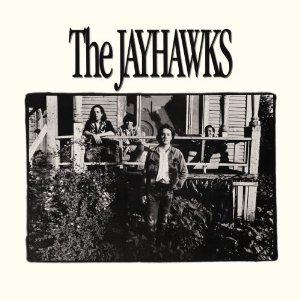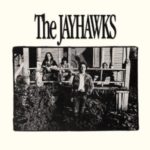
Lost Highway
Regarding the rerelease of the Jayhawks’ eponymous 1986 debut (aka The Bunkhouse Record), first, it’s really good: the songwriting, the sincerity, that insatiable northern twang, those glorious raw harmonies, that song about getting drunk alone in a car lamenting the one that got away, it’s all there. Can it be country if it originates north of Nashville (or north of Chicago, for that matter)? Was this the inception of alt-country? Can it not be a country record if it contains multiple songs about being in and/or out of jail? Does it matter?
While the Bunkhouse Record’s production is raw and the roots country aesthetic is at times two-dimensional, the sublime song craft of which Mark Olson and Gary Louris were (and are) capable shines through in all its throaty charm. This sort of stuff really melts the crust off of a cynical barnacle like… this guy I drink with sometimes who used to write features for Relix. Originally released as a 2000 copy vinyl and cassette only edition, The Bunkhouse record has never previously been available in any digital format, and a debt of gratitude must go out to all invlolved in seeing this to fruition.
But let’s step back a minute: This was 1986 when much of the music industry was churning out shiny speedballs crusted thick with Aqua Net that they’d be apologizing for until VH1… You’ve been spared the remainder of that digression to return to the inception of the Jayhawks, already in progress. Even in this earliest incarnation, the Jayhawks capture a roots country aesthetic and paint every corner of its chosen images, creating an undeniable encompassing reality.
The great Gary Louris was not technically a founding member, as he attended the band’s very first gig, after which he approached Olson and suggested himself as a full-time replacement for sit-in guitarist, Steve Retzler, who filled the slot that first night. Louris, perhaps not enjoying riding on the passenger side, would take a larger leading role over the years, sharing songwriting credits and eventually helming the ship when Olson left the band in 1995. Louris has since produced a body of work (with the Jayhawks, Golden Smog, and most recently as a solo act) that puts him on a very short list of greatest songwriters of all-time from Minnesota, behind one Robert Zimmerman.
But back to their initial recorded effort, which was been so recently transferred to digital and re-released on analog.
“The Liquor Store Came First” is a whiskey soaked ode to casual alcoholism whose brief forlorn horn lines both harken back to analog recording overlays as well as foreshadowing the deeper production that would slowly work it’s way into their records.
“Misery Tavern”, one of the great American teary beer tunes of all time, resides down at the end of lonely street, in the alley, steps away from the service entrance of the Heartbreak Hotel.
The whole record is an early expression of the collective roots country influence of two great American songwriters who had yet to form their own sound. Their collective songwriting and recording style would evolve over the next nine years and be fully realized on Blue Earth and most especially Tomorrow The Green Grass, the sweet, soulful, encompassing final recording of the initial Olson/Louris days. The Bunkhouse Record is a stark piece of new school Americana and well worth the listen for both fans of the Jayhawks’ later work as well as the wholly uninitiated.



No Comments comments associated with this post